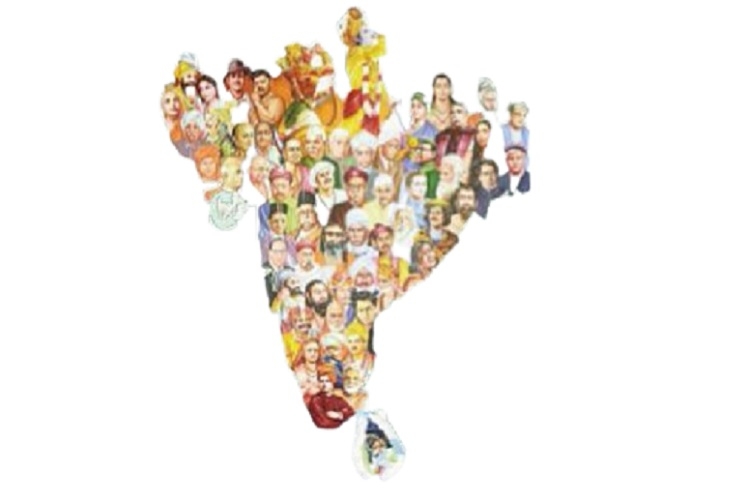Let’s reclaim our heroes
| Date :22-Aug-2023 |

■ By Ashwin Joshi :
INVOKING national heroes within shallow
political discourses is a well-established practice among politicians. Political parties have
skillfully aligned themselves with the national heroes fitting them into their own ideological lines. They have employed these figures both to glorify their virtues and to discard those with differing viewpoints.
The efficacy of this strategy over the years
cannot be overlooked.While some may question the purpose of this practice beyond
diverting from discussions about tangible
on-ground efforts, one cannot dismiss the
fact that it has prompted the public to delve
into history textbooks to
acquaint themselves
with the country’s illustrious past.
However, the narrow
understanding held by
our elected representatives,
or what they choose to disseminate, imposes limitations on these great figures. These
great social reformers have been
categorised along the lines of
caste, community and religion.
By confining these figures to
communities and ideologies, the
politicians have deprived citizens
of the opportunity to fully comprehend and appreciate great men’s
contributions.
Politicians often invoke Chhatrapati Shivaji
Maharaj in Maharashtra, pairing the great
king’s name to ‘Marathi pride.’
However, the
fact is, Chhatrapati Shivaji Maharaj
championed the rights of all
those who were marginalised
by the ruling powers of the
Deccan and Delhi. ‘Hindavi
Swarajya’ was established for
everyone, and not just Marathi
population. Similarly, leaders have
attached Dr Babasaheb Ambedkar
solely with the Dalit movement.What the
leaders never mention is that Dr Ambedkar's
endeavours sought a broader societal transformation, one imperative for the country's
progress as a whole. Why can't a young nonDalit boy, grappling with the challenges of
life, find inspiration in Dr
Ambedkar as a beacon of
hope? This possibility materialises only when Dr Ambedkar is presented in a universal context, detached
from exclusive associations
with just one community.
When today’s political leaders restrict these icons to ideologies or communities for the
purpose of appeasement, they
inadvertently undermine these
legends’ contributions. The
society is compelled to view
these heroes in stark binaries
- either as virtuous or as flawed.
This approach fails to acknowledge the multifaceted contributions each figure has made.
Why should one not be able to
extract the positive aspects
from all of them? All these
heroes have left their distinct
marks.The confinement of
these icons leads to the emergence of‘selectivism.’ Our leaders deliberately pick icons that
resonate with their ideology
and magnify only a limited set
of their attributes. They disregard other facets of these same
personalities that do not correspond to their political
stance.
The Congress party
criticises Swatantryaveer
Savarkar for political expediency. Not a single Congressman
acknowledges the admiration
expressed by former Prime
Minister Indira Gandhi for the
esteemed leader. After Veer
Savarkar's demise in 1966,
Indira Gandhi released a commemorative postage stamp in
his honour. She also commissioned a documentary film
about Savarkar under the auspices of the Central
Government’s Ministry of
Information and Broadcasting.
Similarly, the Bharatiya
Janata Party, known for venerating Veer Savarkar, becomes
visibly uneasy when the topic
of Veer Savarkar's perspective
on cow arises. Despite being
an ardent opponent of cow
slaughter, Veer Savarkar
believed that cow could be
regarded as a mother, but not
as a deity. The act of cow worship, he argued, might lead to
passivity among people, as
God’s attributes are absorbed
by the worshippers. According
to him, Hindus should revere
a deity as formidable as Lord
Narsimha.
As ‘Azaadi Ka Amrit
Mahotsav’ concludes, it’s time
we reclaimed our heroes and
set them free from shackles of
narrow confinements. Let us
strive to build a society where
no one would be judged or
labelled as an ‘opportunist’ for
honouring both Veer Savarkar
and Mahatma Gandhi at a
time, or two leaders with completely different viewpoints
and methods.